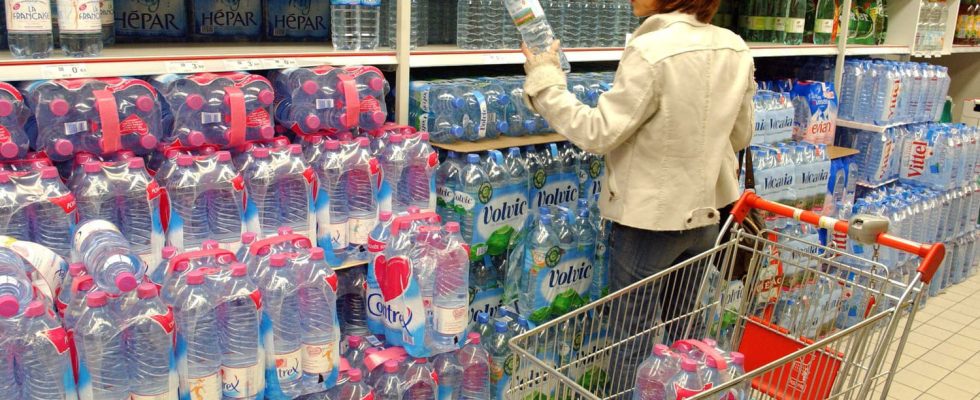The director of information at Foodwatch, Ingrid Kragl, is sounding the alarm on the marketing of the Nestlé group’s mineral waters after an ANSES report showing widespread contamination.
This Thursday, April 4, 2024, a new document from the National Agency for Food, Environmental and Occupational Health Safety (ANSES), unveiled by Franceinfo And The world, points out the contamination of certain natural mineral waters sold in bottles. It concerns waters from the Nestlé group: Perrier, Vittel, Contrex and Hépar.
“No information was communicated to the consumer”
The report notably confirms the widespread contamination with bacteria, pesticides, Pfas, of natural mineral water sources operated by the Nestlé group in France. The information director at Foodwatch – an NGO which fights in particular for safe, healthy and affordable food for all – and specialist in food fraud, Ingrid Kragl, first regrets that no “information has been communicated to consumers neither by Nestlé nor by the authorities.
She would also like to go further in the process: “What we are asking, since confidence is no longer there following today’s revelations, is that we withdraw and recall these products and that finally clear information from the government is directed to the citizen. It’s enough to hide behind your little finger” she indicated this Thursday morning in the 10 a.m.-12 p.m. of France Info.
“Multiple reports of contamination of fecal origin”
In the Anses note sent to the government, certain experts speak of an “insufficient level of confidence” to ensure “the quality of finished products”. The water resources of the Vergèze site, where the Perrier brand is produced, appear, for example, to be vulnerable for Didier Jaffre, director of ARS Occitanie. This is why he requested the services of the health agency. In a letter he mentions the presence of “prohibited treatments” in the factory and a “regular contamination of raw water on at least five of the seven drillings”, as well as the “presence of micropollutants” reports France Info this Thursday.
That’s not all, the report also points out the presence of chemical containers like Pfas, these so-called eternal pollutants. The conclusions of this report call on decision-makers to implement a reinforced monitoring plan for Nestlé factories “considering the multiple findings of contamination of fecal origin”, “the notable chronic presence of micropollutants”, and “the absence of parameters allowing monitoring viral contamination of water” reveals France Info. On the other hand, it is not possible to make a recommendation for finished products, for the simple reason that these cases of non-compliance should lead to the end of the exploitation of sources which produce natural mineral water. Which, potentially, is still the case today.
Nestlé considers the quality of its water “compliant”
Still speaking to France Info, Ingrid Kragl of the NGO Foodwatch recalls that “the European directive on water and the public health code are clear: when mineral water is polluted, there is no doubt that the implementation in bottle and marketing must be suspended. However, that is not what happened” she regrets. In fact, certain regular microbiological contaminations would have been detected in the form of coliform bacteria, Escherichia coli or enterococci. The presence of chemical contaminants such as Pfas, so-called eternal pollutants, is also singled out. For its part, contacted by France Info, the giant Nestlé considers that the quality of its water complies with regulations and ensures that it has withdrawn all other illicit treatments implemented in recent years.
